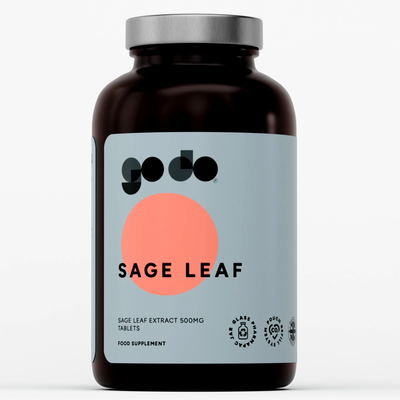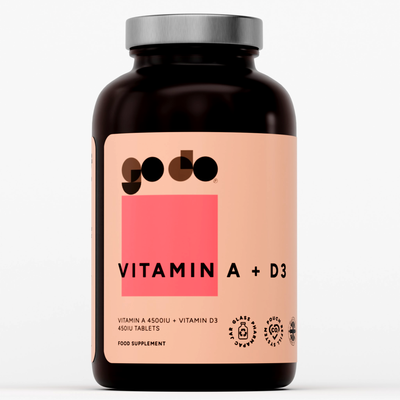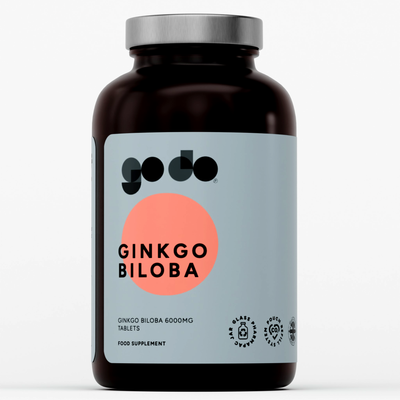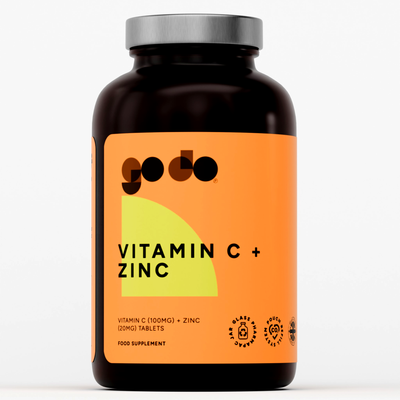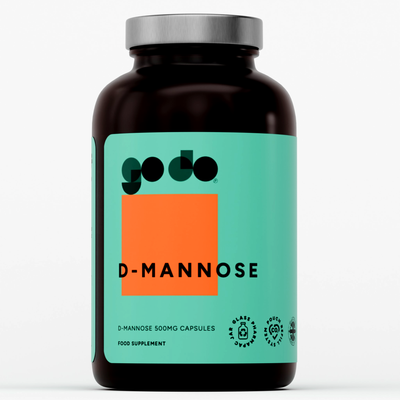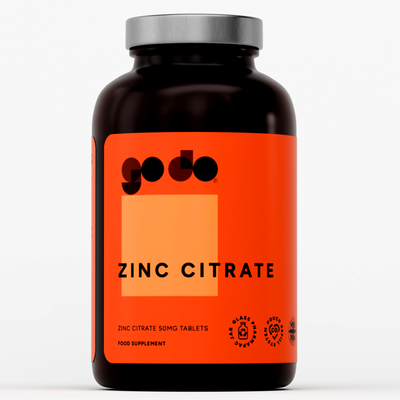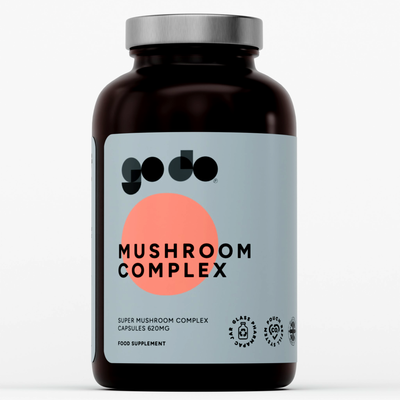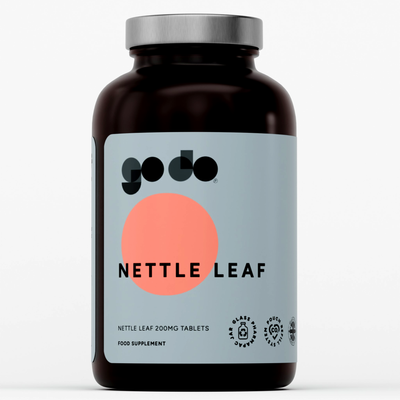Understanding Thyroid Function and Hormonal Balance
The thyroid gland serves as the body's metabolic control center, producing hormones that regulate virtually every cellular process throughout the human body. This butterfly-shaped gland located in the neck synthesizes and releases thyroid hormones, primarily thyroxine (T4) and triiodothyronine (T3), which control metabolism, energy production, body temperature, heart rate, and numerous other vital functions.
Thyroid hormone production involves a complex feedback system between the hypothalamus, pituitary gland, and thyroid gland known as the hypothalamic-pituitary-thyroid (HPT) axis. The hypothalamus releases thyrotropin-releasing hormone (TRH), which stimulates the pituitary gland to produce thyroid-stimulating hormone (TSH), which in turn prompts the thyroid to produce T4 and T3. This intricate system maintains hormonal balance through negative feedback loops that adjust hormone production based on the body's needs.
When thyroid function becomes impaired, either through underactivity (hypothyroidism) or overactivity (hyperthyroidism), the resulting hormonal imbalance can affect virtually every aspect of health and well-being. Hypothyroidism, the more common condition, can lead to fatigue, weight gain, cold intolerance, depression, hair loss, and cognitive difficulties, while hyperthyroidism can cause rapid heartbeat, weight loss, anxiety, and heat intolerance.
The thyroid's role in hormonal balance extends beyond its own hormone production, as thyroid hormones influence the function of other endocrine glands and the effectiveness of various hormones throughout the body. Proper thyroid function is essential for optimal reproductive health, stress hormone regulation, and overall endocrine system balance.
Understanding the complexity of thyroid function helps explain why supporting thyroid health requires a comprehensive approach that addresses multiple factors, including nutrition, stress management, environmental toxin exposure, and targeted supplementation with nutrients essential for optimal thyroid hormone synthesis and function.

Essential Nutrients for Thyroid Health
Iodine: The Foundation of Thyroid Hormone Production
Iodine represents the most critical nutrient for thyroid hormone synthesis, as it forms the structural backbone of both T4 and T3 hormones. The thyroid gland concentrates iodine from the bloodstream and incorporates it into thyroglobulin, a protein that serves as the precursor for thyroid hormone production. Without adequate iodine, the thyroid cannot produce sufficient hormones to meet the body's metabolic demands.
The relationship between iodine intake and thyroid function follows a complex pattern, where both deficiency and excess can cause problems. Severe iodine deficiency leads to goiter formation and hypothyroidism, while excessive intake can trigger autoimmune thyroid conditions or worsen existing thyroid dysfunction. The optimal range for iodine intake appears to be relatively narrow, making careful attention to dosing essential.
Global iodine deficiency remains a significant public health concern, affecting nearly two billion people worldwide, though the prevalence varies significantly by geographic region. In developed countries with iodized salt programs, frank deficiency is less common, but marginal deficiency may still occur, particularly among individuals following restricted diets or living in areas with iodine-poor soil.
Natural food sources of iodine include seafood, seaweed, dairy products from grass-fed animals, and eggs from pasture-raised chickens. However, the iodine content of foods varies significantly based on soil conditions, farming practices, and processing methods, making it challenging to obtain consistent intake through diet alone in many regions.
Supplemental iodine comes in various forms, including potassium iodide, sodium iodide, and organic iodine from kelp or other seaweed sources. The bioavailability and safety profiles of these different forms may vary, with some practitioners preferring organic sources due to their potentially gentler effects and the presence of co-factors that support iodine utilization.
Selenium: The Thyroid's Protective Mineral
Selenium plays multiple crucial roles in thyroid function, serving as a cofactor for enzymes involved in thyroid hormone synthesis, activation, and metabolism. The thyroid gland contains the highest concentration of selenium of any tissue in the body, highlighting this mineral's importance for optimal thyroid function and protection against oxidative damage.
Selenoproteins, including various forms of glutathione peroxidase and deiodinase enzymes, require selenium for their function and are essential for thyroid health. These enzymes protect the thyroid gland from oxidative stress generated during hormone synthesis and facilitate the conversion of T4 to the more active T3 hormone in peripheral tissues.
The deiodinase enzymes, particularly types I and II, are selenium-dependent and crucial for thyroid hormone activation. Type I deiodinase converts T4 to T3 in the liver and kidneys, while type II deiodinase performs this conversion in the brain, pituitary, and other tissues. Selenium deficiency can impair these conversion processes, leading to functional hypothyroidism even when T4 levels appear normal.
Research has demonstrated that selenium supplementation can benefit individuals with autoimmune thyroid conditions, including Hashimoto's thyroiditis and Graves' disease. Selenium's anti-inflammatory and immune-modulating effects may help reduce thyroid antibody levels and slow the progression of autoimmune thyroid destruction.
The optimal selenium intake for thyroid health appears to be in the range of 200-400 micrograms daily, though individual needs may vary based on geographic location, dietary patterns, and existing thyroid conditions. Brazil nuts represent one of the richest natural sources of selenium, with just 1-2 nuts providing the daily requirement, though selenium content can vary significantly between sources.
Tyrosine: The Amino Acid Building Block
Tyrosine serves as the structural foundation for thyroid hormone synthesis, providing the aromatic ring structure onto which iodine atoms are attached to form T4 and T3. This non-essential amino acid can be synthesized from phenylalanine but may become conditionally essential during periods of stress or when dietary intake of precursor amino acids is inadequate.
The thyroid gland incorporates tyrosine into thyroglobulin, where it undergoes iodination to form monoiodotyrosine (MIT) and diiodotyrosine (DIT). These iodinated tyrosine residues are then coupled to form T4 (two DIT molecules) or T3 (one DIT and one MIT molecule), making adequate tyrosine availability essential for optimal hormone production.
Stress, illness, and certain medications can increase tyrosine requirements, as this amino acid also serves as a precursor for important neurotransmitters including dopamine, norepinephrine, and epinephrine. During periods of high stress or illness, the body's demand for these catecholamines may compete with thyroid hormone synthesis for available tyrosine.
Dietary sources of tyrosine include high-protein foods such as meat, fish, eggs, dairy products, nuts, seeds, and legumes. Most individuals following balanced diets obtain adequate tyrosine through food sources, though supplementation may benefit those with restricted diets or increased physiological demands.
Tyrosine supplementation for thyroid health typically involves doses ranging from 500-2000 mg daily, though optimal dosing depends on individual needs and should be balanced with other amino acids to prevent potential imbalances. Taking tyrosine on an empty stomach away from other amino acids may enhance its availability for thyroid hormone synthesis.

Herbal Supplements for Thyroid Support
Ashwagandha: The Adaptogenic Powerhouse
Ashwagandha (Withania somnifera) stands out as one of the most researched and effective adaptogenic herbs for supporting thyroid function, particularly in cases of subclinical hypothyroidism and stress-related thyroid dysfunction. This ancient Ayurvedic herb helps modulate the hypothalamic-pituitary-adrenal (HPA) axis and may directly influence thyroid hormone production and conversion.
Clinical studies have demonstrated that ashwagandha supplementation can increase both T4 and T3 levels in individuals with subclinical hypothyroidism, while also reducing TSH levels toward normal ranges. The herb appears to work by supporting the thyroid gland's ability to produce hormones while also improving the peripheral conversion of T4 to T3, the more active form of thyroid hormone.
The adaptogenic properties of ashwagandha help the body better manage stress, which is crucial for thyroid health since chronic stress can suppress thyroid function through multiple mechanisms. Elevated cortisol levels can interfere with thyroid hormone production, reduce T4 to T3 conversion, and increase the production of reverse T3, an inactive form that can block thyroid hormone action.
Ashwagandha's benefits for thyroid health extend beyond direct hormonal effects to include improvements in energy levels, mood, cognitive function, and sleep quality—all areas commonly affected by thyroid dysfunction. The herb's ability to reduce inflammation and oxidative stress may also help protect the thyroid gland from damage and support long-term thyroid health.
Standardized ashwagandha extracts containing 1.5-12% withanolides are typically used in research, with effective doses ranging from 300-600 mg daily. Some studies have used higher doses up to 6 grams daily, though most benefits appear achievable with moderate dosing when taken consistently over several months.

Guggul: Traditional Thyroid Medicine
Guggul (Commiphora mukul) has been used in traditional Ayurvedic medicine for centuries to support thyroid function and metabolism. The active compounds in guggul, particularly guggulsterones E and Z, have been shown to influence thyroid hormone production and may help stimulate the thyroid gland's function.
Research indicates that guggul may increase the uptake of iodine by the thyroid gland and enhance the activity of thyroid peroxidase, an enzyme crucial for thyroid hormone synthesis. These effects could potentially benefit individuals with mild hypothyroidism or those seeking to optimize thyroid function naturally.
Guggul's effects on cholesterol metabolism may provide additional benefits for individuals with thyroid dysfunction, as hypothyroidism often leads to elevated cholesterol levels. The herb's ability to improve lipid profiles while supporting thyroid function makes it particularly valuable for comprehensive metabolic support.
The anti-inflammatory properties of guggul may help reduce thyroid gland inflammation and support overall thyroid health. Chronic inflammation can interfere with thyroid function and contribute to autoimmune thyroid conditions, making anti-inflammatory support an important component of thyroid care.
Traditional dosing of guggul extracts standardized to contain 2.5-5% guggulsterones ranges from 400-1000 mg daily, though individual needs may vary. The herb is generally well-tolerated, though it may interact with certain medications and should be used under professional guidance, particularly in individuals with existing thyroid conditions.

Bladderwrack and Sea Vegetables
Bladderwrack (Fucus vesiculosus) and other sea vegetables provide natural sources of iodine along with other minerals and compounds that may support thyroid function. These marine plants have been used traditionally in coastal regions where they were recognized for their effects on metabolism and energy levels.
The iodine content of sea vegetables varies significantly based on species, harvesting location, and processing methods. Bladderwrack typically contains moderate amounts of iodine compared to other seaweeds like kelp, making it potentially safer for long-term use while still providing meaningful iodine supplementation.
Beyond iodine, sea vegetables contain various other minerals important for thyroid health, including selenium, zinc, and magnesium. They also provide unique compounds like fucoidans and alginates that may have additional health benefits, including immune system support and heavy metal detoxification properties.
The natural form of iodine found in sea vegetables may be better tolerated and more easily regulated by the body compared to synthetic iodine supplements. The presence of other minerals and compounds in sea vegetables may help modulate iodine absorption and utilization, potentially reducing the risk of iodine excess.
Bladderwrack supplements are typically standardized to provide specific amounts of iodine, with doses ranging from 150-1000 micrograms daily. However, the iodine content can vary significantly between products, making careful label reading and potentially laboratory testing important for determining actual intake levels.

Vitamins and Minerals for Thyroid Function
Vitamin D: The Hormone Regulator
Vitamin D plays increasingly recognized roles in thyroid health and overall endocrine function, with deficiency being commonly associated with various thyroid disorders, including autoimmune thyroid conditions and thyroid cancer. This fat-soluble vitamin functions more like a hormone than a traditional vitamin, influencing gene expression and cellular function throughout the body.
Research has demonstrated strong associations between vitamin D deficiency and increased risk of autoimmune thyroid diseases, including Hashimoto's thyroiditis and Graves' disease. Vitamin D receptors are present in thyroid tissue, and adequate vitamin D levels appear necessary for proper immune system regulation and prevention of autoimmune thyroid destruction.
The immune-modulating effects of vitamin D may help reduce thyroid antibody levels and slow the progression of autoimmune thyroid conditions. Some studies have shown that vitamin D supplementation can lead to reductions in thyroid peroxidase antibodies and thyroglobulin antibodies in individuals with Hashimoto's thyroiditis.
Vitamin D deficiency is extremely common, affecting an estimated 40-60% of the population in many regions, particularly those with limited sun exposure or darker skin pigmentation. Factors that increase deficiency risk include geographic location, season, age, obesity, malabsorption disorders, and limited dietary intake of vitamin D-rich foods.
Optimal vitamin D levels for thyroid health appear to be in the range of 40-60 ng/mL (100-150 nmol/L), which typically requires supplementation with 2000-5000 IU daily for most individuals. However, individual needs vary significantly based on factors like body weight, absorption capacity, and baseline levels, making periodic testing important for optimizing supplementation.
B-Complex Vitamins: Energy and Metabolism Support
The B-complex vitamins play crucial roles in thyroid hormone synthesis, energy metabolism, and overall cellular function, making them essential nutrients for optimal thyroid health. These water-soluble vitamins work synergistically to support various aspects of thyroid function and the metabolic processes that thyroid hormones regulate.
Vitamin B12 is particularly important for individuals with thyroid disorders, as both hypothyroidism and autoimmune thyroid conditions increase the risk of B12 deficiency. B12 is essential for proper nerve function, DNA synthesis, and red blood cell formation, and deficiency can cause symptoms that overlap with those of thyroid dysfunction, including fatigue, cognitive problems, and mood changes.
Folate (vitamin B9) works closely with B12 in various metabolic processes and is important for DNA synthesis and repair. Folate deficiency can interfere with thyroid hormone action and may contribute to elevated homocysteine levels, which are often seen in individuals with hypothyroidism and may increase cardiovascular risk.
Vitamin B6 serves as a cofactor for numerous enzymes involved in protein metabolism and neurotransmitter synthesis. It plays roles in the conversion of tyrosine to thyroid hormones and may help support the peripheral action of thyroid hormones in target tissues.
Riboflavin (B2) and thiamine (B1) are essential for cellular energy production and may help improve the fatigue and energy problems commonly associated with thyroid dysfunction. These vitamins support the mitochondrial processes that thyroid hormones regulate and may help optimize the metabolic effects of thyroid hormone therapy.
B-complex supplementation typically provides balanced ratios of all B vitamins, with doses ranging from basic RDA amounts to higher therapeutic levels depending on individual needs. Some individuals with thyroid conditions may benefit from higher doses of specific B vitamins, particularly B12 and folate, which can be supplemented individually if needed.

Zinc: The Conversion Catalyst
Zinc serves as a cofactor for numerous enzymes involved in thyroid hormone synthesis, conversion, and metabolism, making it an essential mineral for optimal thyroid function. Zinc deficiency can impair thyroid hormone production and peripheral conversion of T4 to T3, leading to functional hypothyroidism even when thyroid hormone levels appear normal.
The deiodinase enzymes responsible for converting T4 to T3 require zinc for proper function, and zinc deficiency can significantly reduce T3 production. This is particularly important because T3 is the more metabolically active form of thyroid hormone, and reduced T3 levels can cause hypothyroid symptoms despite normal T4 levels.
Zinc also plays important roles in immune system function and may help modulate autoimmune responses that can affect the thyroid gland. Adequate zinc status appears important for preventing excessive immune system activation and reducing the risk of autoimmune thyroid conditions.
The absorption and utilization of zinc can be affected by various factors, including dietary phytates, calcium supplementation, certain medications, and gastrointestinal health. Individuals with digestive disorders or those taking proton pump inhibitors may be at increased risk for zinc deficiency.
Food sources of zinc include oysters, beef, lamb, pumpkin seeds, and other protein-rich foods, though the bioavailability varies significantly between sources. Zinc from animal sources is generally better absorbed than zinc from plant sources, which may be bound to phytates that reduce absorption.
Zinc supplementation for thyroid health typically involves doses of 15-30 mg daily of elemental zinc, preferably in forms like zinc picolinate or zinc glycinate that offer good bioavailability. Taking zinc on an empty stomach enhances absorption but may cause nausea in some individuals, so taking it with a small amount of food may be necessary.

Omega-3 Fatty Acids and Thyroid Health
Anti-Inflammatory Effects on Thyroid Function
Omega-3 fatty acids, particularly EPA (eicosapentaenoic acid) and DHA (docosahexaenoic acid), provide powerful anti-inflammatory effects that can benefit thyroid health through multiple mechanisms. Chronic inflammation can interfere with thyroid hormone production, conversion, and cellular action, making anti-inflammatory support an important component of comprehensive thyroid care.
The inflammatory processes involved in autoimmune thyroid conditions like Hashimoto's thyroiditis and Graves' disease can be modulated by adequate omega-3 intake. These essential fatty acids help produce specialized pro-resolving mediators (SPMs) that actively resolve inflammation and promote tissue healing, potentially slowing the progression of autoimmune thyroid destruction.
Omega-3 fatty acids can influence the expression of genes involved in inflammation and immune function, potentially reducing the production of inflammatory cytokines that can interfere with thyroid function. This epigenetic effect may help explain why omega-3 supplementation can have long-lasting benefits for individuals with thyroid disorders.
The cell membrane composition is significantly influenced by dietary fatty acid intake, and adequate omega-3 levels help maintain optimal membrane fluidity and function. This is particularly important for thyroid hormone action, as thyroid hormones must enter cells through membrane receptors and transporters to exert their metabolic effects.
Research has shown that individuals with autoimmune thyroid conditions often have altered fatty acid profiles, with increased inflammatory omega-6 fatty acids and decreased anti-inflammatory omega-3 fatty acids. Correcting this imbalance through dietary modification and supplementation may help improve thyroid function and reduce autoimmune activity.
Optimal Dosing and Sources
The optimal ratio of omega-6 to omega-3 fatty acids for health appears to be approximately 4:1 or lower, though the typical Western diet often provides ratios of 15:1 or higher. Reducing omega-6 intake while increasing omega-3 consumption helps restore this balance and may provide significant benefits for thyroid health.
High-quality fish oil supplements providing 1-3 grams of combined EPA and DHA daily represent the most common approach to omega-3 supplementation for thyroid support. Higher doses may be beneficial for individuals with active autoimmune thyroid conditions or significant inflammation, though professional guidance is recommended for therapeutic dosing.
The ratio of EPA to DHA in supplements may influence their therapeutic effects, with higher EPA ratios potentially providing greater anti-inflammatory benefits while higher DHA ratios may be more beneficial for brain and nervous system health. Many thyroid-focused practitioners prefer EPA-dominant formulations for their anti-inflammatory effects.
Plant-based omega-3 sources like flaxseed oil, chia seeds, and algae-derived supplements provide alpha-linolenic acid (ALA) or direct EPA/DHA, respectively. While ALA can be converted to EPA and DHA, this conversion is limited in humans, making direct EPA/DHA sources more effective for therapeutic purposes.
The quality and purity of omega-3 supplements varies significantly between manufacturers, with factors like oxidation levels, heavy metal contamination, and processing methods affecting both safety and efficacy. Third-party testing for purity and potency helps ensure supplement quality and therapeutic value.
Adaptogenic Herbs for Stress and Thyroid Balance

Rhodiola: Stress Resilience and Energy
Rhodiola rosea represents one of the most well-researched adaptogenic herbs for supporting stress resilience and energy production, both of which are crucial for optimal thyroid function. This hardy Arctic plant has been used traditionally in Northern European and Asian cultures for enhancing physical and mental performance under stressful conditions.
The active compounds in rhodiola, including rosavins and salidroside, help modulate the hypothalamic-pituitary-adrenal (HPA) axis and may indirectly support thyroid function by reducing the suppressive effects of chronic stress on thyroid hormone production and conversion. Chronic stress can significantly impair thyroid function through multiple pathways.
Research has demonstrated that rhodiola can help improve fatigue, enhance mental clarity, and support physical performance—all areas commonly affected by thyroid dysfunction. While rhodiola doesn't directly stimulate thyroid hormone production like some other herbs, its ability to improve stress resilience and energy utilization may help individuals with thyroid disorders feel and function better.
The adaptogenic effects of rhodiola help normalize cortisol patterns and improve the body's ability to handle various stressors, which is particularly important for individuals with autoimmune thyroid conditions where stress can trigger flares and worsen symptoms. Better stress management may help slow the progression of autoimmune thyroid destruction.
Rhodiola supplementation typically involves standardized extracts containing 3% rosavins and 1% salidroside, with effective doses ranging from 200-600 mg daily. The herb is generally best taken in the morning or early afternoon to avoid potential interference with sleep, and effects are typically noticed within 1-2 weeks of consistent use.

Holy Basil: Cortisol Regulation and Thyroid Support
Holy basil (Ocimum tenuiflorum), also known as tulsi, offers unique benefits for thyroid health through its effects on stress hormone regulation and overall adaptogenic properties. This sacred herb in Ayurvedic medicine has been extensively studied for its ability to modulate cortisol levels and support healthy stress responses.
Elevated cortisol levels from chronic stress can significantly suppress thyroid function by inhibiting TSH release, reducing T4 to T3 conversion, and increasing the production of reverse T3, an inactive form that can block thyroid hormone action. Holy basil's ability to help normalize cortisol patterns may indirectly support better thyroid function.
The antioxidant and anti-inflammatory properties of holy basil may help protect the thyroid gland from oxidative damage and reduce inflammation that can interfere with hormone production. The herb contains various phenolic compounds and essential oils that contribute to its protective effects on endocrine tissues.
Research has shown that holy basil can help reduce anxiety, improve sleep quality, and enhance overall stress resilience—all factors that can significantly impact thyroid health and symptom management. Better sleep and reduced anxiety may help individuals with thyroid disorders feel more energetic and mentally clear.
Holy basil is generally well-tolerated and can be consumed as a tea, extract, or capsule supplement. Standardized extracts providing 2-6% ursolic acid are commonly used, with typical dosing ranging from 300-2000 mg daily depending on the concentration and individual needs.
Schisandra: Liver Support and Hormone Balance
Schisandra chinensis, known as the "five-flavor berry" in traditional Chinese medicine, provides unique benefits for thyroid health through its effects on liver function and overall adaptogenic properties. The liver plays crucial roles in thyroid hormone metabolism, including the conversion of T4 to T3 and the clearance of excess or inactive hormones.
The liver is the primary site for the peripheral conversion of T4 to T3, and impaired liver function can significantly reduce T3 production, leading to functional hypothyroidism even when T4 levels are normal. Schisandra's hepatoprotective effects may help optimize liver function and improve thyroid hormone conversion and metabolism.
Schisandra contains various lignans, including schisandrin A and schisandrin B, that help protect liver cells from damage and support phase I and phase II detoxification processes. Enhanced liver detoxification may help reduce the burden of environmental toxins that can interfere with thyroid function.
The adaptogenic properties of schisandra help improve stress resilience and may support overall hormonal balance through effects on the HPA axis. The herb has been traditionally used to enhance mental clarity, reduce fatigue, and improve physical endurance—all areas commonly affected by thyroid dysfunction.
Schisandra supplementation typically involves standardized extracts or whole berry preparations, with effective doses ranging from 500-3000 mg daily of whole berry equivalent or 100-500 mg of concentrated extract. The herb is generally well-tolerated and can be taken long-term as part of a comprehensive thyroid support protocol.

Thyroid-Supporting Lifestyle Factors
Sleep Quality and Thyroid Recovery
Sleep quality profoundly affects thyroid function and hormonal balance, with inadequate or poor-quality sleep contributing to thyroid dysfunction through multiple mechanisms. During sleep, the body performs crucial repair and regeneration processes, including thyroid hormone synthesis and the restoration of optimal hormone balance throughout the endocrine system.
The relationship between sleep and thyroid function is bidirectional, with thyroid disorders commonly causing sleep disturbances while poor sleep can worsen thyroid dysfunction. Hypothyroidism often leads to excessive sleepiness, while hyperthyroidism can cause insomnia and restless sleep, creating cycles that can perpetuate hormonal imbalances.
Sleep deprivation can suppress TSH production and alter the normal circadian rhythm of thyroid hormone release, potentially leading to reduced thyroid hormone production and impaired peripheral conversion of T4 to T3. Chronic sleep loss may also increase cortisol production, which can further suppress thyroid function.
The timing and quality of sleep affect the production of various hormones that interact with thyroid function, including growth hormone, melatonin, and cortisol. Disrupted sleep patterns can lead to hormonal imbalances that compound thyroid dysfunction and make symptom management more challenging.
Optimizing sleep quality involves multiple strategies, including maintaining consistent sleep schedules, creating conducive sleep environments, managing stress levels, and addressing any underlying sleep disorders. Some thyroid-supporting supplements like magnesium and certain herbs can also help improve sleep quality.
Stress Management and Cortisol Balance
Chronic stress represents one of the most significant lifestyle factors affecting thyroid health, with elevated cortisol levels from ongoing stress capable of suppressing thyroid function through multiple pathways. Effective stress management becomes a crucial component of any comprehensive approach to supporting thyroid health and hormonal balance.
Stress affects thyroid function at multiple levels, including the hypothalamic-pituitary-thyroid axis, peripheral hormone conversion, and cellular hormone action. Chronic stress can reduce TSH production, impair T4 to T3 conversion, increase reverse T3 production, and reduce thyroid hormone receptor sensitivity.
The HPA axis and HPT axis are closely interconnected, with chronic activation of the stress response system leading to suppression of thyroid function as the body prioritizes immediate survival over long-term metabolic regulation. This relationship explains why many individuals develop thyroid problems during or after periods of significant stress.
Autoimmune thyroid conditions are particularly sensitive to stress, with emotional or physical stressors often triggering initial onset or disease flares. Stress management becomes especially important for individuals with Hashimoto's thyroiditis or Graves' disease to help prevent symptom exacerbations and slow disease progression.
Effective stress management techniques include regular exercise, meditation, yoga, deep breathing exercises, adequate sleep, social support, and time management strategies. Some individuals may benefit from professional counseling or stress management programs, particularly during periods of significant life changes or challenges.

Exercise and Metabolic Support
Regular physical activity provides numerous benefits for thyroid health and overall hormonal balance, though the type, intensity, and duration of exercise must be carefully considered for individuals with thyroid dysfunction. Appropriate exercise can help improve energy levels, mood, metabolism, and overall well-being while supporting optimal thyroid function.
Moderate-intensity exercise appears most beneficial for thyroid health, as excessive high-intensity training can increase cortisol production and potentially suppress thyroid function, particularly in individuals who are already hypothyroid or dealing with significant stress. Finding the right balance of activity is crucial for maximizing benefits while avoiding overtraining.
Exercise helps improve insulin sensitivity and glucose metabolism, which can be impaired in individuals with thyroid dysfunction. Better metabolic function may help optimize the cellular effects of thyroid hormones and improve energy production at the cellular level.
Regular physical activity can help reduce inflammation and oxidative stress, both of which can interfere with thyroid function and contribute to autoimmune thyroid conditions. The anti-inflammatory effects of moderate exercise may help protect the thyroid gland and support overall endocrine health.
Weight management through appropriate exercise can be particularly challenging for individuals with hypothyroidism, as reduced metabolic rate makes weight loss difficult. However, regular activity combined with proper nutrition and thyroid support can help optimize body composition and metabolic function over time.
Safety Considerations and Interactions
Potential Supplement Interactions
Natural thyroid-supporting supplements can interact with prescription thyroid medications, other supplements, and various medications, making careful consideration of potential interactions essential for safe and effective supplementation. Understanding these interactions helps optimize therapeutic benefits while minimizing risks.
Iodine supplementation can be particularly problematic for individuals taking thyroid medications, as excess iodine can worsen both hypothyroidism and hyperthyroidism depending on the underlying condition and individual sensitivity. The timing and dosing of iodine supplements must be carefully coordinated with thyroid medication therapy.
Iron, calcium, and coffee can significantly reduce the absorption of levothyroxine and other thyroid medications when taken within several hours of medication administration. These interactions can lead to reduced medication effectiveness and potentially inadequate thyroid hormone replacement.
Some herbal supplements may affect liver enzyme activity and potentially alter the metabolism of thyroid medications, leading to changed blood levels and therapeutic effects. St. John's wort, for example, can increase the metabolism of various medications and may reduce thyroid medication effectiveness.
Selenium supplementation at high doses may interfere with iodine utilization and could potentially worsen iodine deficiency in susceptible individuals. The balance between selenium and iodine intake requires careful consideration to optimize thyroid function while avoiding adverse effects.
Monitoring and Professional Guidance
Regular monitoring of thyroid function through appropriate laboratory testing becomes particularly important when using natural supplements to support thyroid health, as these interventions can influence thyroid hormone levels and may require adjustments to prescription medications.
Comprehensive thyroid testing should include TSH, free T4, free T3, and reverse T3 to provide a complete picture of thyroid function and hormone conversion. Some individuals may also benefit from thyroid antibody testing to assess for autoimmune thyroid conditions that may require specific management approaches.
The timing of supplement use in relation to thyroid medication administration and laboratory testing can affect both therapeutic outcomes and test result interpretation. Most thyroid medications should be taken on an empty stomach, while many supplements are better absorbed with food, requiring careful scheduling.
Working with healthcare providers experienced in integrative thyroid care helps ensure that natural supplementation is appropriately coordinated with conventional treatments and that potential interactions or adverse effects are properly monitored and managed.
Individual responses to thyroid-supporting supplements can vary significantly, and what works well for one person may not be appropriate for another. Professional guidance helps tailor supplementation protocols to individual needs, health status, and treatment goals while optimizing safety and effectiveness.
Quality and Purity Standards
The quality and purity of natural supplements varies significantly between manufacturers, making careful product selection essential for both safety and therapeutic effectiveness. Poor-quality supplements may contain contaminants, incorrect dosages, or inactive ingredients that reduce their therapeutic value.
Third-party testing by independent laboratories provides verification of supplement purity, potency, and absence of contaminants like heavy metals, pesticides, and microorganisms. Looking for products with certifications from organizations like NSF International, USP, or ConsumerLab helps ensure quality standards.
Standardized herbal extracts provide more consistent therapeutic effects compared to whole herb preparations, as they guarantee specific concentrations of active compounds. However, standardization methods can vary, and some individuals may respond better to whole herb preparations that contain the full spectrum of plant compounds.
The source and processing methods used for supplements can significantly affect their quality and bioavailability. Organic certification, sustainable sourcing practices, and gentle extraction methods help ensure that supplements retain their therapeutic properties while minimizing exposure to harmful chemicals.
Storage conditions and expiration dates affect supplement potency and safety over time. Proper storage in cool, dry conditions away from light helps maintain supplement quality, while using products before their expiration dates ensures optimal therapeutic effects.
Conclusion: Integrating Natural Thyroid Support
Natural thyroid-supporting supplements offer valuable tools for optimizing thyroid function and hormonal balance when used as part of a comprehensive approach that includes appropriate medical care, lifestyle modifications, and careful monitoring. The key to success lies in understanding individual needs, potential interactions, and the importance of professional guidance.
The foundation of natural thyroid support begins with ensuring adequate intake of essential nutrients like iodine, selenium, tyrosine, vitamin D, and zinc, which are required for optimal thyroid hormone synthesis, conversion, and action. These nutrients work synergistically and should be balanced appropriately based on individual assessment and testing.
Adaptogenic herbs like ashwagandha, rhodiola, and holy basil can provide valuable support for stress management and overall endocrine balance, which are crucial for optimal thyroid function. These herbs work best when used consistently over time as part of a holistic approach to health and wellness.
The importance of lifestyle factors including adequate sleep, stress management, appropriate exercise, and environmental toxin reduction cannot be overstated in supporting thyroid health. Natural supplements work most effectively when combined with these foundational lifestyle practices.
Individual variation in response to natural thyroid support emphasizes the need for personalized approaches that consider unique biochemistry, health status, medications, and treatment goals. What works optimally for one person may not be appropriate for another, making careful assessment and monitoring essential.
Working with qualified healthcare providers who understand both conventional thyroid medicine and natural approaches helps ensure safe and effective integration of natural supplements with appropriate medical care. This collaborative approach optimizes outcomes while minimizing risks and helps individuals achieve their best possible thyroid health and overall well-being.
The journey to optimal thyroid health often requires patience, persistence, and willingness to make gradual adjustments based on response and changing needs. Natural thyroid support should be viewed as a long-term investment in health that requires ongoing attention and refinement to achieve and maintain optimal results.




